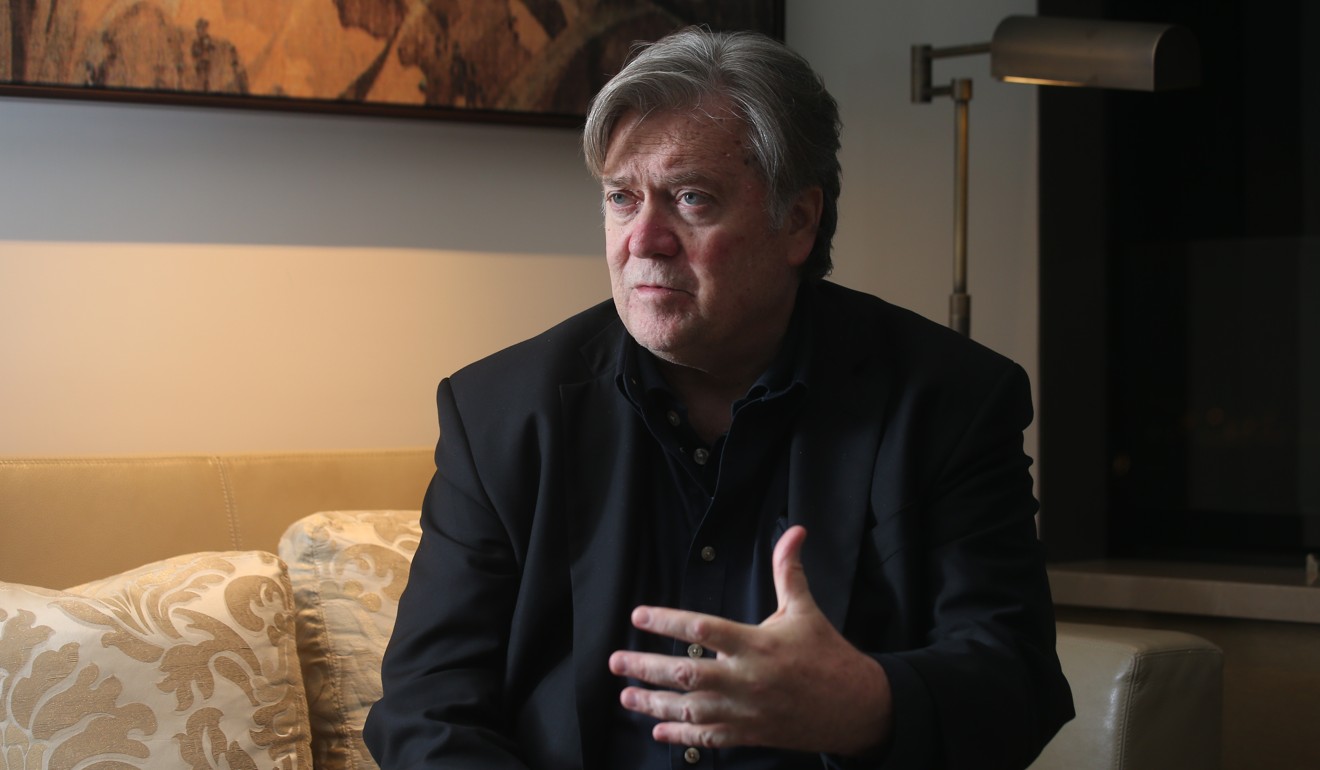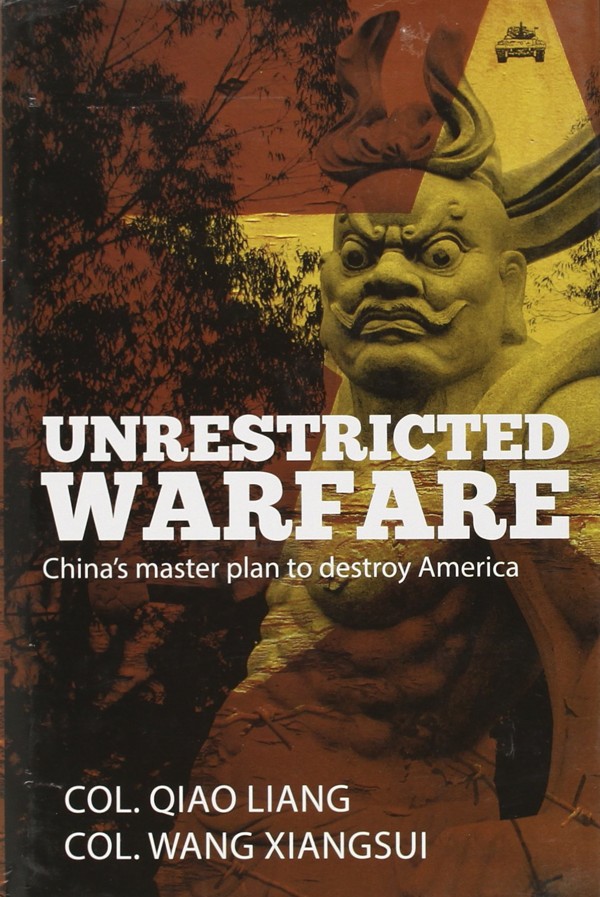
Exclusive | Chinese military strategist who inspired Steve Bannon attacks Donald Trump’s ‘outdated imperialist thinking’
The US ‘is declining because they have many problems, all of which were created by themselves’, says Unrestricted Warfare co-author Qiao Liang
A Chinese military strategist who co-wrote a book that inspired former White House political adviser Steve Bannon to conclude China was waging an economic war against the United States criticised the “outdated and stupid imperialist thinking” that led US President Trump to launch the trade war.
Taking aim at Trump’s blaming of China for numerous US challenges, Qiao Liang, co-author of Unrestricted Warfare, said the US “is declining because they have so many problems, which were all created by themselves, but they put the blame on China … because they are still using outdated and stupid imperialist thinking to judge China”.
Steve Bannon and the Chinese book that made him a China hawk
Qiao accused Trump of mixing up his personal motivations – conflating his bid to help fellow members of the Republican Party prevail in the upcoming US midterm elections with his decision to enter a trade war with Beijing.
“The US became a superpower because of its competitiveness and better systems, not by creating hurdles to drag down its competitors,” he said.
But rather than sticking to that model, the US was now trying to “create more obstacles to drag China down and maintain its No 1 status”, Qiao said, referring to the punitive tariffs the US imposed on Chinese goods to launch the trade war.

Published in 1999, Unrestricted Warfare discusses America’s vulnerabilities and suggests non-traditional military ways to defeat a superpower like the US.
Bannon told the South China Morning Post in a recent interview that the book – which gained the subtitle China’s Master Plan to Destroy America when it was translated into English by an Indian publisher in 2008 – inspired him to conclude that “China was engaging in economic warfare” against the US.
He was not alone. Many China-friendly American experts reconsidered their view of China after reading Unrestricted Warfare, according to The Hundred Year Marathon: China’s Secret Strategy to Replace America as the Global Superpower, a 2015 book by Michael Pillsbury, director of the Centre on Chinese Strategy at the Hudson Institute, a conservative Washington think tank.
But Qiao dismissed that interpretation as “a misjudgment”, saying his book sought to advise weak countries on how to deal with major powers, and warn big countries not to use “imperialist thinking” when dealing with problems.
“The core criterion that decides which countries become superpowers is their national thinking,” said Qiao, who co-wrote his book with Wang Xiangsui, another Chinese military strategist.
“Unrestricted Warfare summarised Chinese national thinking and provided an insight into people’s thoughts.”

Once labelled China’s leading hawk by his Western counterparts, Qiao said the strategic thinking illuminated in Unrestricted Warfare was traditional in China and had been applied in many fields.
Notably, it inspired The Art of War, an ancient Chinese text on military strategy written by Sun Tze in about 512BC.
Nevertheless, Qiao said he and Wang never doubted their book would create worldwide controversy once it was published.
He said also that Trump blaming China for America’s problems was misguided.
“No major power has ever been totally replaced or devoured by another power,” he said. “A superpower’s fall was caused by its decline.”
For instance, the US replaced Britain as the world’s biggest economy in the 19th century, but Britain was still around, he said.
“All superpowers are just fading when they are replaced; they do not disappear,” Qiao said. “Russia is still there in the aftermath of the collapse of Soviet Union.”
Trump to inflict ‘unbearable’ trade pain on China, Steve Bannon says
The US would do well to emulate China by adopting a development model based on “unrestricted thinking”, he said.
Qiao cited China’s late leader Deng Xiaoping’s idea of a taoguang yanghui (lie low) policy, which advocated building economic rather than military strength, which remains a guiding principle of the country’s foreign and security affairs.

